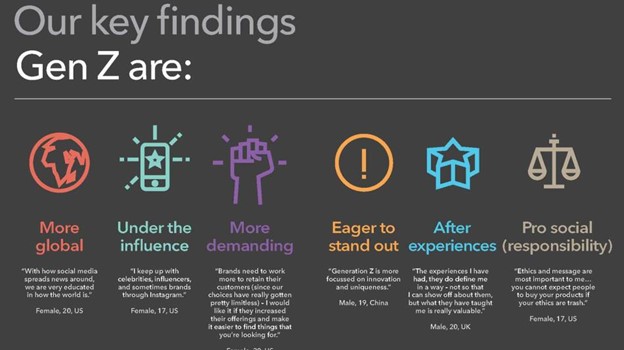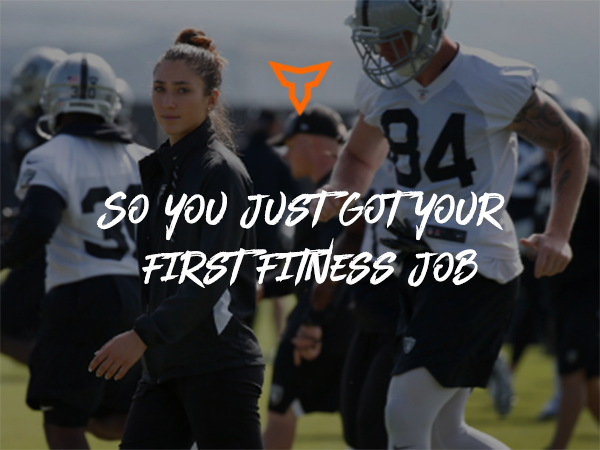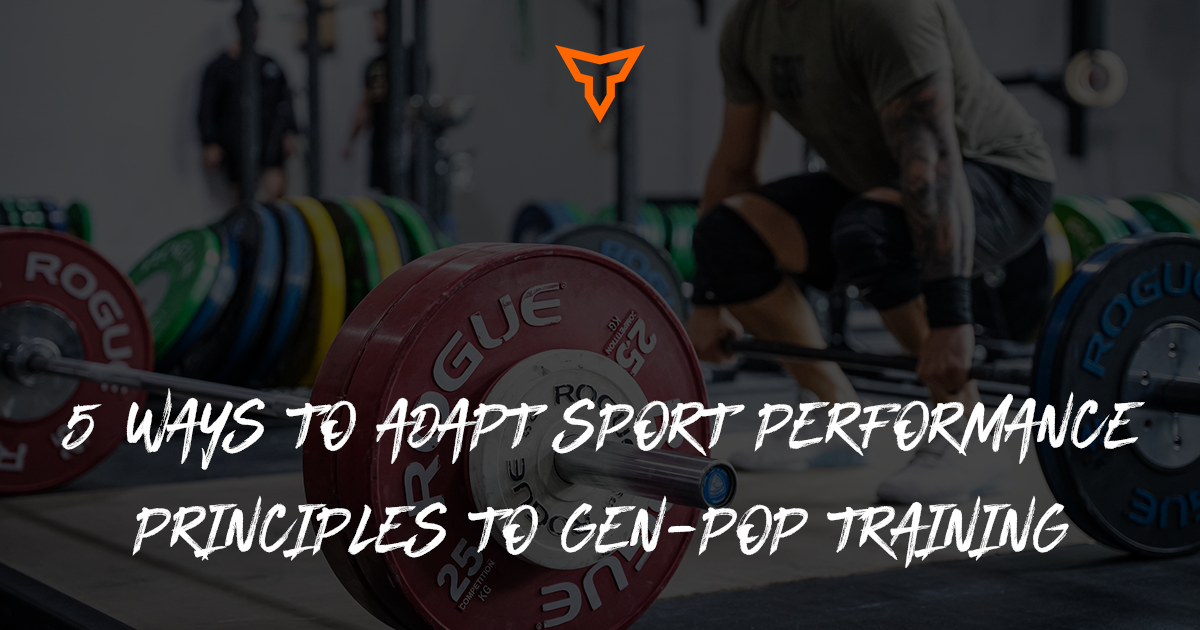10 Effective Ways to Work with Gen Z Athletes
There have been a couple of common phrases that I have heard since entering the strength and conditioning field. “These kids nowadays are different.” “These kids aren’t coachable; they don’t know anything.” “These kids are soft.” What I believe most coaches are referring to is just how different this new generation of athletes is. The athletes we work with nowadays are extremely different from the athletes these coaches were back in the day. In my opinion, THEY SHOULD BE. The only constant thing in this whole entire universe that is going to happen regardless of anything ever, is CHANGE. Change is the only constant, consistent, inevitable concept that will always be present. I’m talking today, tomorrow, and years from now, change is at the center of it all. Through change, you learn, you grow, and you evolve. We’ve evolved as athletes, we’ve evolved with the resources we are fortunate to provide our athletes, and we’ve evolved in the modalities used to train and coach our athletes. So, why not evolve in the way that we coach, connect, and develop our athletes as well?
I’d like to start off by defining what makes this new generation of athletes so different. Defining the characteristics of the generation these athletes are classified by will help understand how to approach working with them. Generation Z athletes are born between the years of 1995-2012. According to the Oxford Languages Dictionary, Generation Z is defined as, “the generation reaching adulthood in the second decade of the 21st century, perceived as being familiar with the internet from a very young age.” They are the generational cohort following millennials. According to BambooHR, Generation Z is the largest generation in American history and constitutes 27 percent of the country’s population. The “Z” in Generation Z stands for “zoomer” as this is the first generation known to zoom the internet. A great infographic that helped me understand the key findings of what makes Generation Z so different is as follows:

The more we can understand this generation instead of trying to mold them into the generations that have come before them, the better we are able to develop them in all facets that come with being an elite athlete. Below, you will find 10 ways that I have found to be successful in working with today’s athletes:
1. Meet Them Where They Are At
The best possible way to develop today’s athletes whether it be in the weight room, on the field, in the film room, or in the classroom in meeting them exactly where they are in every area. Figure out their learning style. Collaboration between the strength coach, position coach, and academic advisors is KEY. As a coach, we HAVE to be able to adapt our coaching style to how our athletes receive information. That’s not saying to change any of our core values, principles, or rules. But the way in which we explain them must be adaptable based on the athletes we are working with. Meet them where they are at to develop them past the point they even thought was possible.
2. Connect With Them
The common saying, “athletes don’t care how much you know until they know how much you care”, is one of my absolute favorites. Today’s athletes CRAVE connection. Especially after the past two years. Not only has in-person connection been on a gradual decline since the introduction of social media, but Covid happened as well. The freshman class of 2020 had to start all their classes online and isolated instead of getting to experience the real college student life their first two years. Connection is essential, and it should be the top priority. Finding the best way to connect with our individual athletes will not only create buy-in but will also help our athletes show up as the best versions of themselves and connect with each other on a deeper level. There are enough surface-level relationships that exist. Valuing and encouraging deep relationships within a team sets the greatest foundation to build from. The best teams have the best chemistry.
3. Empower Their Confidence
Every single athlete we coach has their own unique individual greatness. I think it is our job as coaches to bring that out of them. I feel like lately, a lot of athletes I’ve worked with second guess themselves and their abilities. This past year, at the University of Houston when I was working with women’s soccer, women’s basketball, and with softball, my main goal was to empower their strong queen energy. In my mind, queens can handle anything thrown their way. I wanted my girls to not only KNOW and BELIEVE they could do hard things but SEEK hard things too! A team that wants to do hard things together is a team that will harvest success. Coach Kara from Duke Women’s Basketball said it best, “Handle Hard Better.” We’ve got to be intentional about how we empower our athletes to adapt that mindset.
4. Challenge Their Entitlement
Many coaches in the field that have been in the field for years tend to think this generation of athletes is entitled. Entitled is defined as, “believing oneself to be inherently deserving of privileges or special treatment.” (Oxford Languages Dictionary) I like to challenge my athletes in a way that helps me learn more about them and have them learn more about themselves. I challenge their entitlement by making them self-aware of how they respond to adversity. I use a three-tier system that includes self-awareness, self-assessment, and self-leadership. Through that system, I can gather their lingo, how they view themselves, their goals, what motivates them, and what works best for them. When everyone is on the same page in that regard, it makes it easier to hold the athletes accountable and develop a player-led mindset. As much as it is our responsibility to develop our athletes, it is on THEM as well to be self-aware and to be able to make a decision for themselves too. Challenging their entitlement is holding them accountable and committed to the process THEY said they wanted. When they say they want to win, and the actions they show contradict that, you explain to them the “why” that’s not okay, you make sure they understand that is not how you do things, and you refocus their energy on the common goal and encourage them to fight every single day to show up as the best version of themselves.
5. Genuinely Listen to Their Interests
Allowing our athletes to be themselves and express themselves the way they want is so important. The years of 17-22 can be tough. You are away from your parents for the first time, you are finding out who you are and who you want to be, you are finding out what you like and dislike, and the whole nine yards. That is A LOT to process for the young mind on top of being a student-athlete. Having genuine conversations with your athletes to find out who they are at their core, what makes their faces light up and smile, and where they get their values from is invaluable. Yes, you learn that through the recruiting process, but during the recruiting process, everything is shiny, exciting, and new. Once an athlete is submerged in the new culture of the team and the new environment, listening to and taking note of what they are interested in through conversations will help them be able to adjust quicker. It’s not all about training and then going home and coming back the next day to do it all over again. Get to know the athletes you are working with, as strength coaches, we are the ones that spend the most time with them.
6. Be Able To Explain The "Why" In Everything
I think we have quickly become aware that this generation of athletes is not the type to just keep their mouths shut and do what you say. They are inquisitive. They ask questions, and they want to know the why. They want to know how what we do in the weight room transfers over to what they do on their respective playing field. As coaches, we must be able to explain the why in a way that they are able to receive it. A lot of times, we’ve got to adjust our explanations to make sure we are adhering to every learning style in our collective group. There may be some instances where the standard is the standard, but you must be able to clearly and concisely explain the standard and then adhere to it as a coach every single day. They’ll be waiting on the day that you say one detail doesn’t matter. Coaches that can show up with the same intensity that they expect of their athletes every single day set that standard. The “why” is easy to explain and understood when there is a level of consistency.
7. Create A Hardworking But Fun Environment
Think about it, as strength coaches, we have a unique setup. We have our whole team of athletes and a lot of the time by ourselves. We have them in an environment where many are the least comfortable. They’re comfortable out on the field/court/pool etc. using their God-given talent in their respective sports. We’ve got to create a fun environment for them. We must make them want to do the hard stuff. Nothing is better as an athlete than to look back after you’ve gone through arguably one of the toughest training sessions in your life and be able to look to both sides of you and see your teammates that have endured the same thing. Those are the stories and memories you remember. I create a fun environment by being positive and bringing high energy every single day. I remember to have fun myself as a coach. I have all my athletes give me three (or 10 if you’re my soccer girls) of their favorite hype songs. I’ve learned that I had a very eclectic interest in music across my teams, so I made sure to include all of the different genres and songs on a playlist, so everyone has their hype song come on during a training session. Music is a huge influencer in the weight room and that is something I’ll always use to my advantage.
8. Value Athlete Development in All Facets (Physical, Mental, Emotional, Spiritual)
We’ve GOT to value development. We set these kids up for success not only on their respective playing fields but also in life outside of their sport and life after their sport. An athlete can have all the achievements in the world coming into college from high school. They can be the number one on their team or in their town. But what a lot of them fail to realize is that they are coming up and competing against the number one from cities and countries all around the world. That’s a hard adjustment to swallow for some. It’s not until the first week of summer workouts hit, the first day of practice, and the first game under the bright lights arise that you find out how a kid is going to respond. But through those experiences, you’re able to develop your athletes tenfold.
Developing them for the physical aspects takes place in the off-season during the biggest block we get with them where can build them to be strong, powerful, and fast based on their sport demands. Developing them mentally is making them self-aware of how they respond to adversity and giving them constructive and healthy ways to stay even-keeled through all the ups and downs that come with sports. Developing them emotionally is understanding their level of emotional intelligence and being able to provide a safe space for them to be able to express those emotions in a healthy way and encouraging them that it is okay to be HUMAN. Developing them spiritually will always depend on the coach, but growing their faith and encouraging them that their doing all things for the glory of God and through God can be extremely helpful.
9. Find Ways to Relate
Today’s generation of athletes is more demanding. They thrive on standing out. They value social media, and whether we agree to that being a good or bad thing, that shift has happened. The best way I have found to relate is recording them within a training session and posting it on my story and tagging them or creating a post. I also try and send the videos to the athletes, so they can post them themselves too. Also, paying attention to what they’re into as a collective whole whether that be Tik Tok, playing 2K, going out to eat, watching movies, cooking, etc. Finding ways to relate and find out what they’re passionate about is not only fun but the best gauge of team chemistry and program chemistry between coaches and their players. My dad still plays Madden on the PS5 with his guys at 56 years of age. If that ain’t the coolest thing, I don’t know what is!
10. Be Consistent
None of the above can happen without a level of consistency. As coaches, we are put in the position to be some of the best role models to our kids. That’s something I do not take lightly. If we want our kids to adhere to a certain standard, we as coaches must live and breathe that standard too. Three things I’ve lived by from my mentor Jim Krumpos at Arizona are, 1) Be on time, 2) Do things right, 3) Show up as your best self every single day. If you focus on those three things, being consistent comes easy. Having YOUR ATHLETE’S best interest in mind is always best. I never forget as a coach that our success and our way of taking care of and providing for ourselves, and our families are in the hands of 17-22 year old’s at the end of the day. The more I can pour into them, develop them, love them, and empower them, the better it is for everyone that is a part of that program.
Today’s generations of athletes have changed, there are no ifs, and, or buts about that. With the amount of development and adjusting that we ask of these kids, we MUST be willing to meet them where they are at and adjust the ways in which we deliver our messages, and change our coaching style as coaches when it’s needed. There have been so many coaches today that have openly admitted that they’ve changed their coaching style and that has brought them success. Success leaves clues. As always, I am game for discussing topics further with fellow coaches! Always feel free to reach out with any questions! Thank you and GOD BLESS!
Info Graphic:
Subscribe to our blog
Subscribe to receive the latest blog posts to your inbox every week.
Related posts
%201.png?width=720&height=400&name=Sport%20Coach%20(4)%201.png)
Going From Coach to Leader: Using the 5 C's

So You Just Got Your First S&C Job


